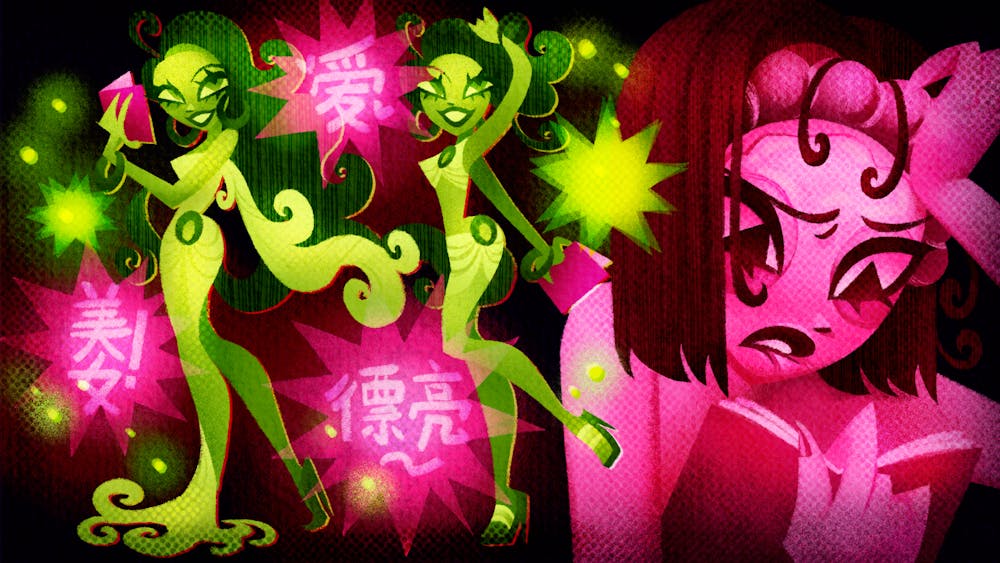There is a new red book proliferating around China, but it’s not connected to the infamous Mao Zedong or politics.
Instead, it is the Chinese e–commerce and social media platform called Little Red Book (小红书), otherwise known as RED, which combines the authentic feel of TikTok with the inspiration of Pinterest and the quality of Instagram. Originally a strictly Chinese platform, RED has garnered international attention for its users’ advice on the best cosmetics, exercises, and habits to finally achieve that new you. Through these miraculous transformations, RED is revolutionizing China’s global role in the economy and pop culture while reliant on the basis of traditional Chinese ideals.
Established in Shanghai in 2013, the platform now boasts 200,000,000 active users a month only a decade later. What sets the company apart, however, is its impressive commitment to authenticity. The site’s algorithm rewards influencers for posting suggestions and advice to other netizens with massive followings. Moreover, you won’t find anonymous 1–star reviews here. The company diverted from the standard commerce practices of enabling users to rate products anonymously.
Instead, RED encourages its netizens to produce “notes”: in–depth critiques featuring every–angle pictures and weeks worth of user feedback. Though their most effective measure centers around the very products advertised, RED requires its companies to be approved through an application process before they can be featured on the site. Users believe in the authenticity of the products and their favorite influencers, blending RED’s facets of e-commerce and content creation.
RED’s identity and mission are the product of thousands of years of Chinese cultural ideals. Honesty is one of the core tenets of Confucianism, a Chinese philosophy that still underpins much of East Asian culture and rhetoric. Even Confucius once equated honesty to one’s humanity. Deceiving others wasn’t just a grave sin; it was downright inhumane. The result of these ancient influences is the cultivation of an online community steeped in trust.
Alongside cultural ideals, however, RED also embodies traditional Chinese beauty standards. Although concepts of beauty have certainly evolved throughout China’s history, delicate features, white skin, and large eyes have remained desirable features throughout the eras. Today, RED’s users, primarily millennial women, are subjected to these through current social media trends. One entails women hiding their waists behind a piece of A4 paper. Another involves women putting objects—even live goldfish—in their collar bones. RED takes advantage of these standards; the site advertises weight–loss and skin–whitening products that target these age–old insecurities.
RED’s users embodied the site’s focus on beauty standards, asking other netizens to give them motivation for self–improvement. They often post pictures of themselves brandishing a sign that reads, “Help me glow up,” in Chinese. Netizens then eigh in with lifestyle and beauty tips to better align their clientele with pre–existing Chinese beauty standards, such as suggesting strict weight regiments, Korean skin care products, or skin whitening creams.
When a middle–aged man (小艾同学) posted his extreme glow–up transformation, he went viral and garnered international attention, attracting even foreigners to get the netizen's life–changing advice.
This man's case was inspiring to many because, in addition to glowing up physically, he also secured a high–paying job and got married. Many associated the life and worth he’d built solely with his physical beauty. Foreign users hoped for and appreciated the sometimes brutal honesty that netizens displayed toward their pictures, wishing that these insults would lead to a similarly drastic makeover.
The glow–up culture showcased on RED promotes the logical fallacy that greater adherence to societal beauty standards will automatically change one’s life. RED netizens' comments may be authentic and enthusiastic, but they often only focus on the physical aspects of the person they are trying to help. In reality, the glowed–up man's physical change didn't change his life; rather, it was the lifestyle habits he developed during the process. The site’s "glow–up culture" is dependent on the exploitation and exacerbation of people’s insecurities on the basis of toxic and outdated beauty trends, which alienate different body types and races from being perceived as beautiful.
While double eyelids and prominent collarbones might not change your life, they do benefit the pockets of foreign companies that are interested in the platform. While the idea of the consumer was strictly a Western idea until the turn of the century, China now boasts the fastest–growing population with the most purchasing power. Due to the trust–based nature of the platform, companies view RED as an easy way to infiltrate this rapidly growing Chinese consumer market. Smaller Western brands are using the word–of–mouth power of popular influencers to create a space for themselves in the beauty and fashion markets. Indeed, RED has thrust many small or irrelevant brands into high–demand solely from their popularity on the platform.
China’s rapidly growing consumer base is quickly gravitating towards the epicenter of a shifting global economy. As such, Chinese culture has been making waves through other global markets and cultures. As this newest generation of Chinese netizens becomes increasingly more globalized, however, it is important to revisit the premises that they stand on. While RED can be lauded for its authenticity and focus on self–improvement, it should also be held responsible for promoting toxic and exclusionary beauty standards. To glow up, after all, isn’t about chasing someone else’s standard of physical perfection but about becoming the best version of yourself.

